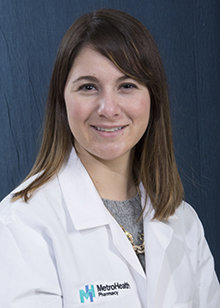A Prescription for a Healthy Heart
Our pharmacists break down the five most common types of medications for heart-related conditions.
Five Common Heart Medications
There are several medications your provider can prescribe to treat various cardiac conditions. Common conditions that might require medication include high blood pressure, high cholesterol, an irregular heartbeat, a lack of blood flow to the heart, blood clots and heart failure.
- Direct Oral Anticoagulants
Anticoagulants – often called “blood thinners” – are used to treat or prevent blood clots. Blood clots are dangerous because they can travel through the arteries or veins into the brain or heart, which can cause a stroke or heart attack. Because Direct Oral Anticoagulants are so effective, they don’t require regular blood testing or special diets like other anticoagulants.
Common types: Rivaroxaban (Xarelto), Apixaban (Eliquis), Dabigatran (Pradaxa), Edoxaban (Savaysa)
- Statins
Your primary care provider will likely check your cholesterol with a simple blood test. High levels of LDL cholesterol – the “bad” cholesterol – can increase your risk for heart disease or a stroke. Statins help lower LDL levels and boost HDL levels (the “good” cholesterol). Statins also lower triglycerides, another type of fat in your body.
Common types: Atorvastatin (Lipitor), Simvastatin (Zocor), Lovastatin (Mevacor), Pitavastatin (Livalo), Pravastatin (Pravachol), Rosuvastatin (Crestor), Fluvastatin (Lescol)
- Diuretics (Water Pills)
A weak heart pumps less blood to your kidneys, which can cause water retention and result in swollen legs and ankles. If that is the case, your provider may prescribe a diuretic, which can help rid your body of extra fluids.
Common types: Furosemide, bumetanide, torsemide
- Sodium-Glucose Cotransporter 2 Inhibitors
SGLT2 inhibitors are typically used to treat Type 2 diabetes but have increasingly shown benefits for patients with heart failure. They can help the kidneys excrete sodium and improve the way the heart contracts and relaxes.
Common types: dapagliflozin (Farxiga), empagliflozin (Jardiance)
It’s always important to take medications as prescribed and to understand any possible side effects.
Your primary care provider and MetroHealth pharmacists are available to answer any questions you may have. To schedule an appointment with a primary care provider, call 216-My-Metro 216-696-3876 or visit metrohealth.org/appointments. To learn more about our Pharmacy, call 216-957-6337(MEDS) or visit metrohealth.org/pharmacy.
Contributors:

Megan Valente, PharmD
Heart Failure Clinical Specialist
&
Brittany Passerell, PharmD (not pictured)
Specialty Pharmacist










